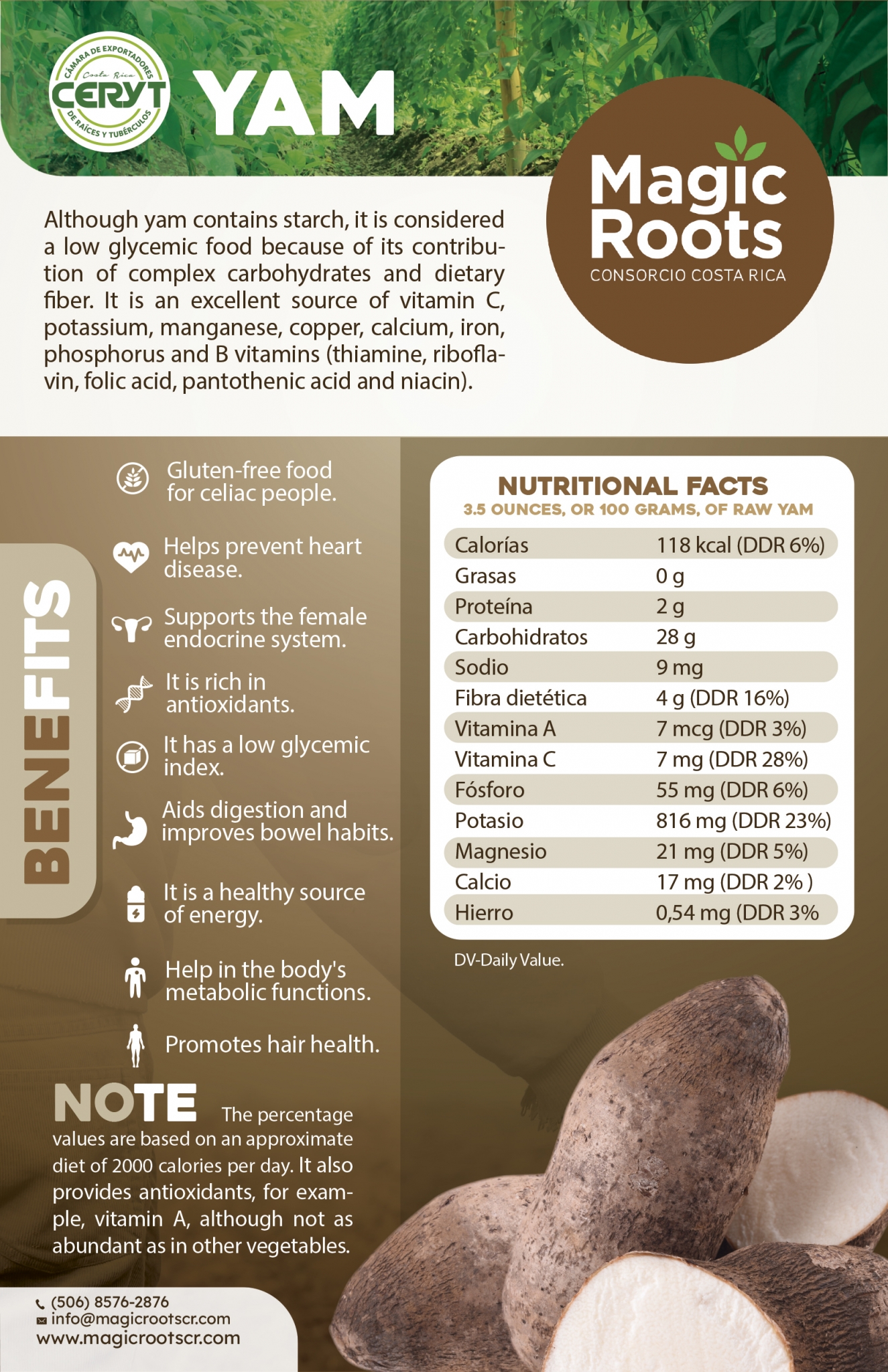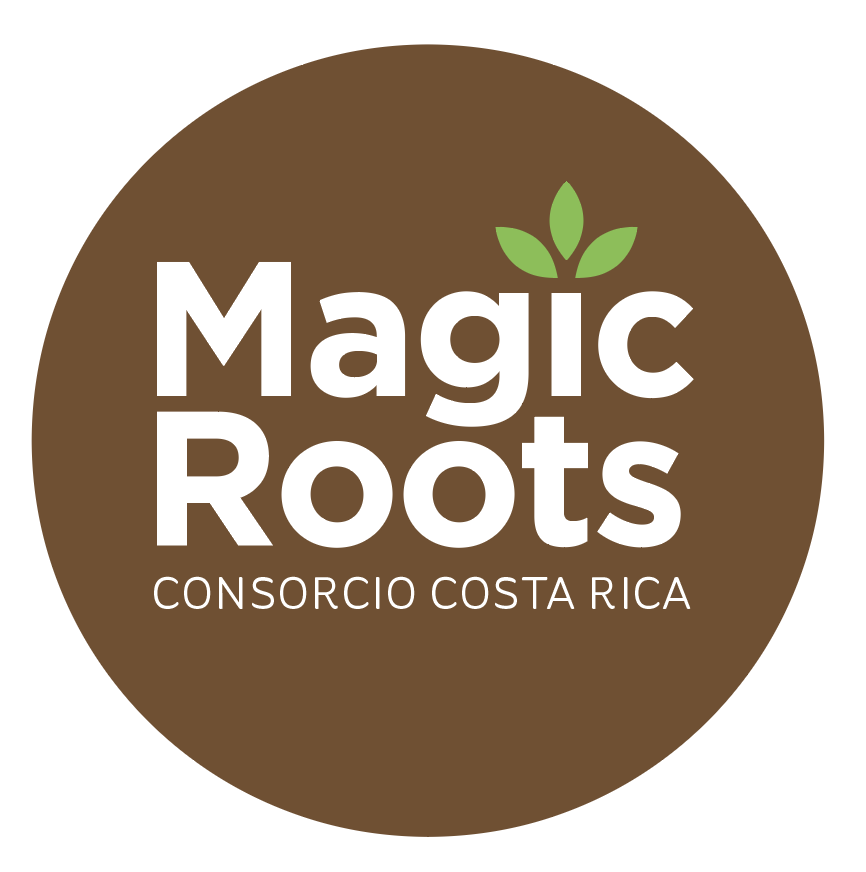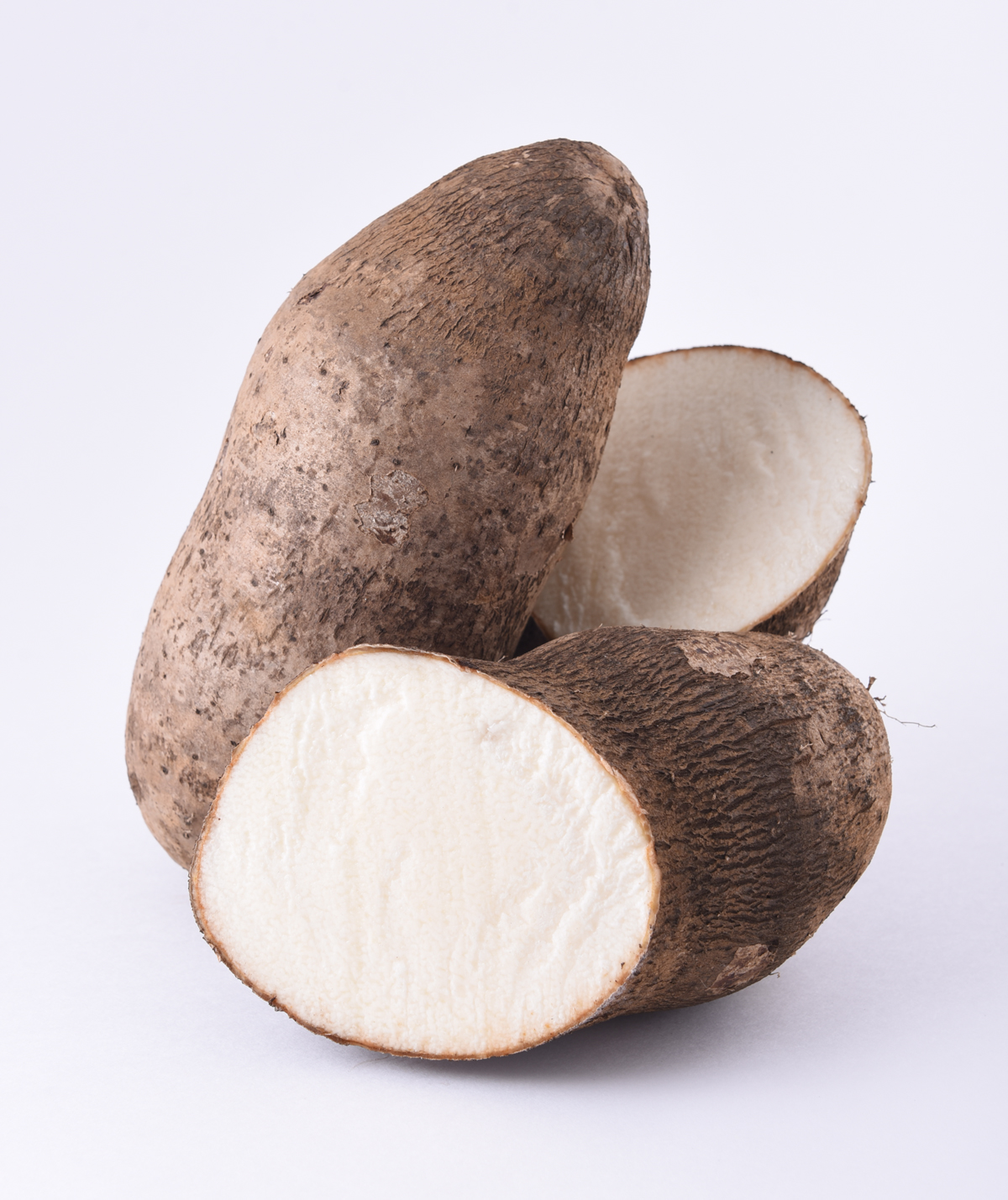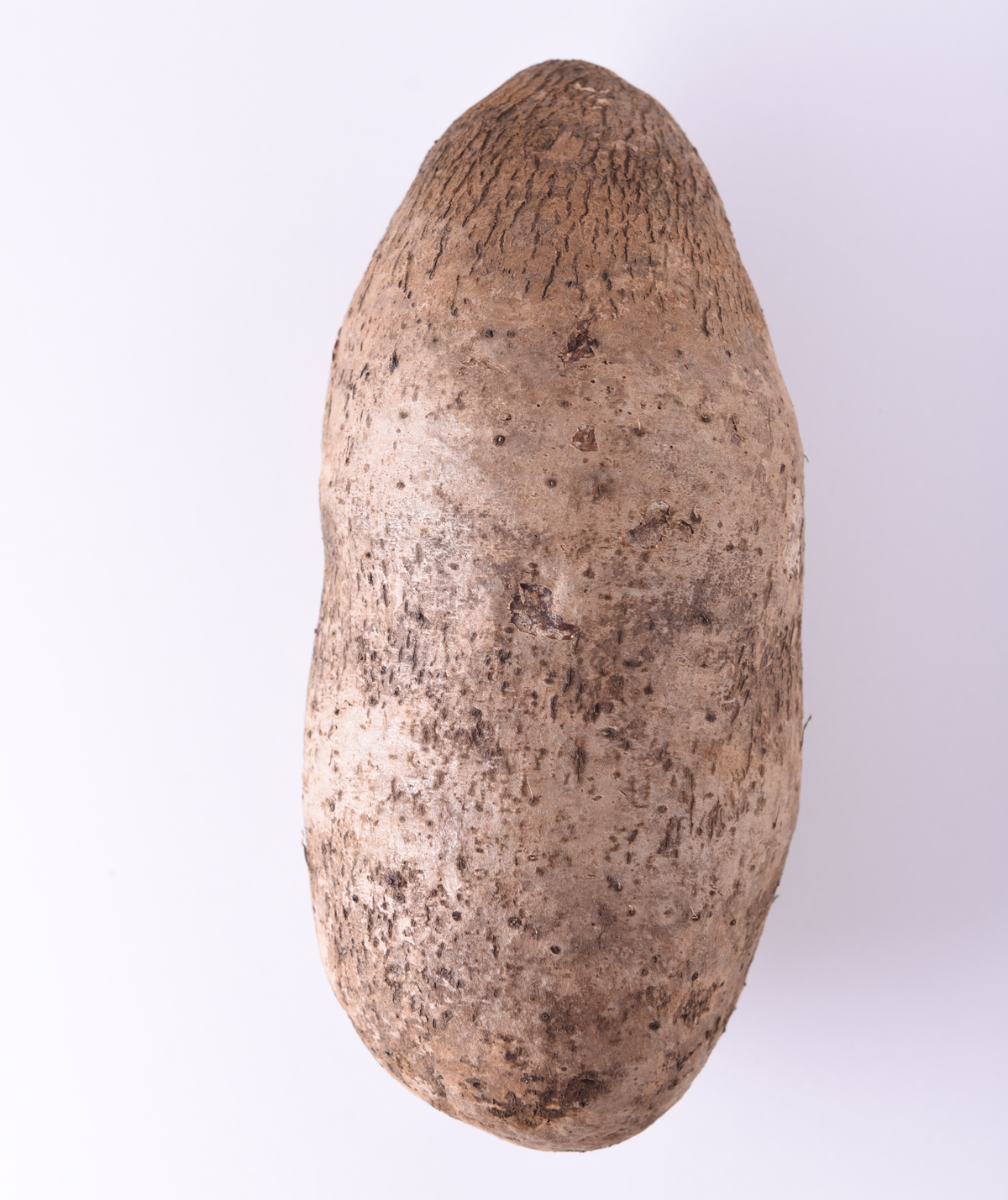yam
Although yam contains starch, it is considered a low glycemic food because of its contribution of complex carbohydrates and dietary fiber.
It is an excellent source of vitamin C, potassium, manganese, copper, calcium, iron, phosphorus and B vitamins (thiamine, riboflavin, folic acid, pantothenic acid and niacin). It also provides antioxidants, for example, vitamin A, although not as abundant as in other vegetables (potatoes), remains a significant value.
Yam Nutrition Facts (3.5 ounces, or 100 grams, of raw yam):
- Calories: 118 kcal (DV 6%)
- Fats: 0 g
- Protein: 2 g
- Carbohydrates: 28 g
- Sodium: 9 mg
- Dietary fiber: 4 g (DV 16%)
- Vitamin A: 7 mcg (DV 3%)
- Vitamin C: 17 mg (DV 28%)
- Phosphorus: 55 mg (DV 6%)
- Potassium: 816 mg (DV 23%)
- Magnesium: 21 mg (DV 5%)
- Calcium: 17 mg (DV 2%)
- Iron: 0.54 mg (DV 3%)
DV-Daily Value
Note: The percentage values are based on an approximate diet of 2000 calories per day.
of Yam
Properties, benefits and uses
- Helps prevent heart disease. Yam is an excellent source of potassium, an important component in the production of body and cellular fluids, and also controls heart rate and blood pressure by counteracting the hypertensive effects of sodium.
- Supports the female endocrine system. Yam is particularly useful for menopausal women, as it contains an enzyme capable of mimicking hormone replacement treatment in women who have reached menopause. This tuber has traditionally been used to treat breastfeeding problems, nausea during pregnancy, symptoms of premenstrual syndrome (PMS), muscle cramps and hormone imbalance. (Komesaroff PA, Black CV, Cable V, Sudhir K. 2001 Jun; 4 (2): 144-50. Effects of wild yam extract on menopausal symptoms, lipids and sex hormones in healthy menopausal women. Retrieved from https://www.ncbi.nlm.nih.gov/pubmed/11428178).
- It is rich in antioxidants. Yam contains healthy antioxidants, such as, beta-carotene and vitamin C, compounds that help the body undo the damage caused by free radicals (associated with the formation of cancer cells).
- It has a low glycemic index. Yam is mainly composed of complex carbohydrates and dietary fiber, which helps keep blood glucose levels balanced.
- Aids digestion and improves bowel habits. The dietary fiber present in yam helps prevent constipation, while its potassium content improves digestion and stimulates the contraction of smooth muscle in the stomach, helping to have proper bowel habits.
- It is a healthy source of energy. Being a source of complex carbohydrates and fiber, yam is a good option to keep energy levels stable over time. It is also rich in magnesium, a mineral that favors the metabolism of carbohydrates and is involved in energy production.
- Help in the body’s metabolic functions. Carotenes are essential for metabolizing vitamin A. In turn, vitamin A improves vision and maintains the health of mucous membranes and skin. Vitamin C boosts the production of collagen, combats aging, improves immunity, accelerates wound healing and promotes bone growth.
- Promotes hair health. The anthocyanins, beta-carotene and vitamin A present in yam are beneficial for cell growth, including hair growth.



